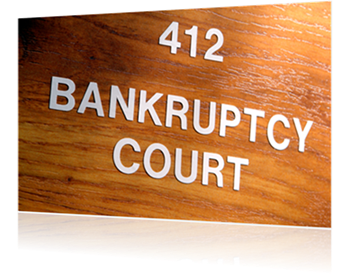Georgia Retirees Find Pension Advances May Cause more Harm than Good
By Fred P. Kross P.C.
May. 20, 2013 9:25a

Retired public workers and others with a retirement pension who have tried to solve their current financial difficulties with a pension advance find they may have just delayed the problem and often made it much worse. There are many companies that offer a lump sum of money to those with a pension and call it a "pension advance" since the idea is that the individual will be able to pay it back with a number of pension payments. The offer of thousands of dollars upfront can sound like the perfect solution to an immediate financial hardship. Unfortunately, many retired individuals who have taken up this offer then find themselves in even more debt and difficulties later on. Many of these pension-advance companies are not banks and so do not have to follow state or federal banking regulations. Some pensioners feel they are being unethically targeted and taken advantage of by these organizations. R.G., a Georgia retiree who is a disabled military veteran, is taking his case to federal court after finding out the true cost of his pension advance. Speak with a bankruptcy attorney knowledgeable in handling creditors if you feel you are being unjustly treated.
Pension Advance Interest Rates Can Range from 27 to 106 Percent
When including the fees involved for a pension advance, the total interest that a retiree may end up paying on their loan can be over 100 percent of their principle loan amount. Not all of the fees involved may be disclosed in advertisements or even in the loan contract. Vietnam War veteran R.G. received a loan advance of $10,000 which was to be paid back over 60 months. What he discovered, however, is that with fees and monthly payments of just over $350 per month he would be paying a total of over $21,000 at the end of those 60 months. This results in an interest rate of 36.4 percent. Advocates for the elderly and economic justice for low-income individuals are appalled by this practice of targeting those who may be desperate but cannot qualify for a bank loan or line of credit. According to Federal Reserve statistics, the 65 to 74 age group is increasing in debt higher than any other age group. These facts have come to the attention of federal and state regulators who are seeking ways to curb these almost predatory lending practices which target those who may find themselves in a desperate economic situation.
Are you overwhelmed by debt?
Whether you are considering filing for bankruptcy or are interested in alternatives to bankruptcy, I may be able to help. Contact me at
Fred P. Kross P.C. today to schedule a time to discuss your case. I am dedicated to helping clients get the debt relief they need!
Other Recent Articles
Exemptions are the types of property you are allowed to keep when filing for a personal bankruptcy, such as a Chapter 7 or Chapter 13.
More Articles »
In the state of Georgia, 72,198 personal bankruptcies were filed in 2011. At 7.35 filings per 1,000 people, that put the state at the second-highest in the country in bankruptcy rates.
More Articles »
The number of bankruptcy filings in Georgia is down 15 percent but our state is still in the number two spot for highest bankruptcies in the nation. According to the American Bankruptcy Institute, the ...
More Articles »